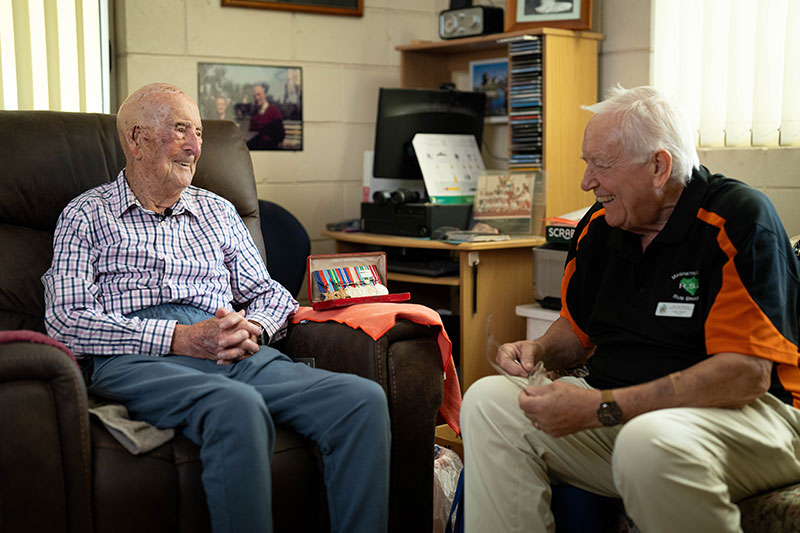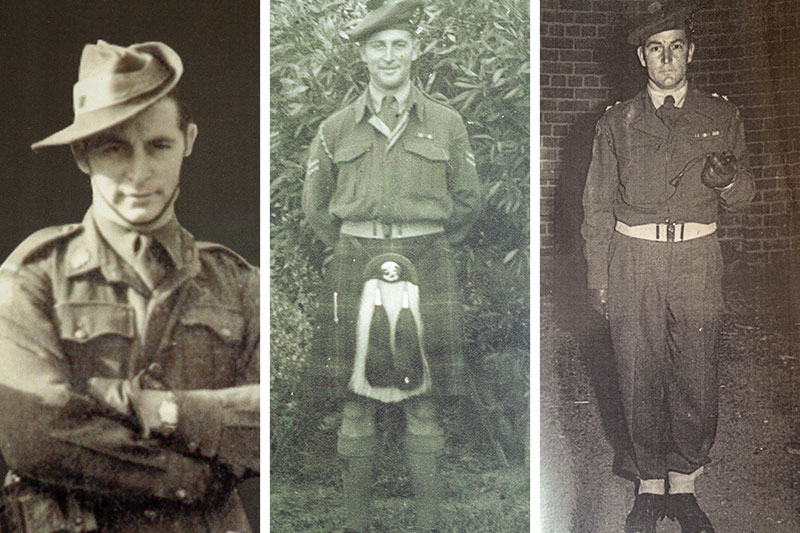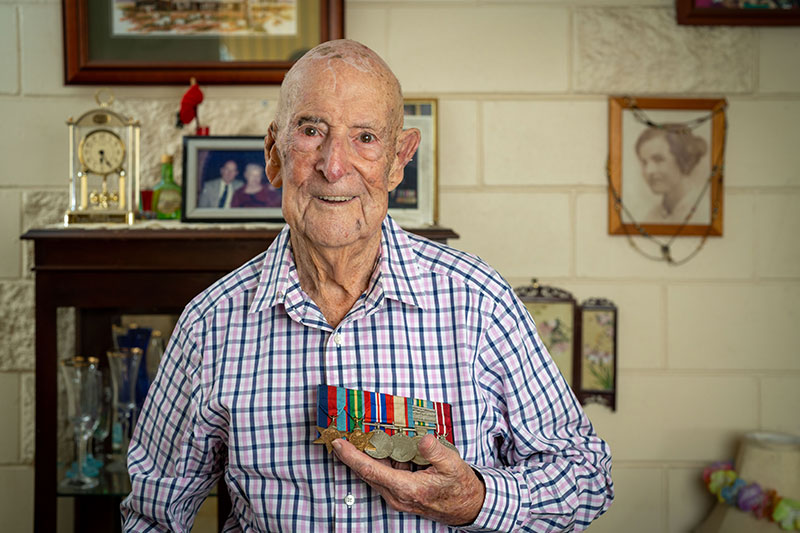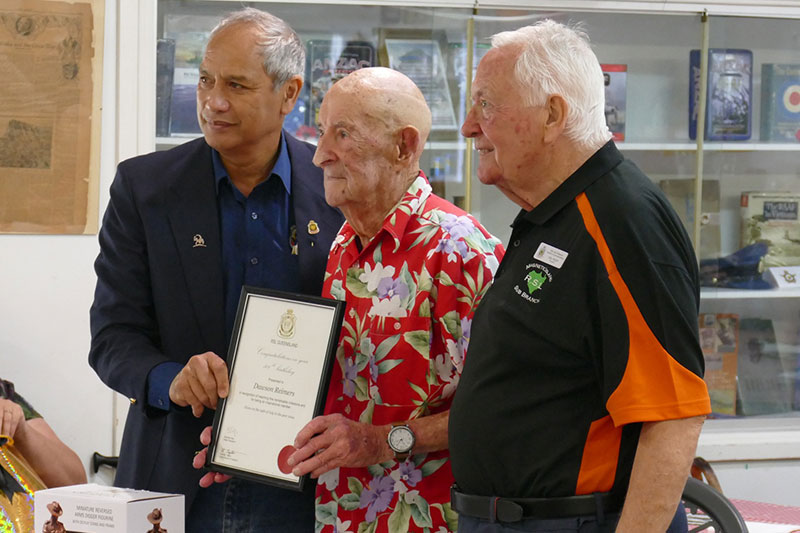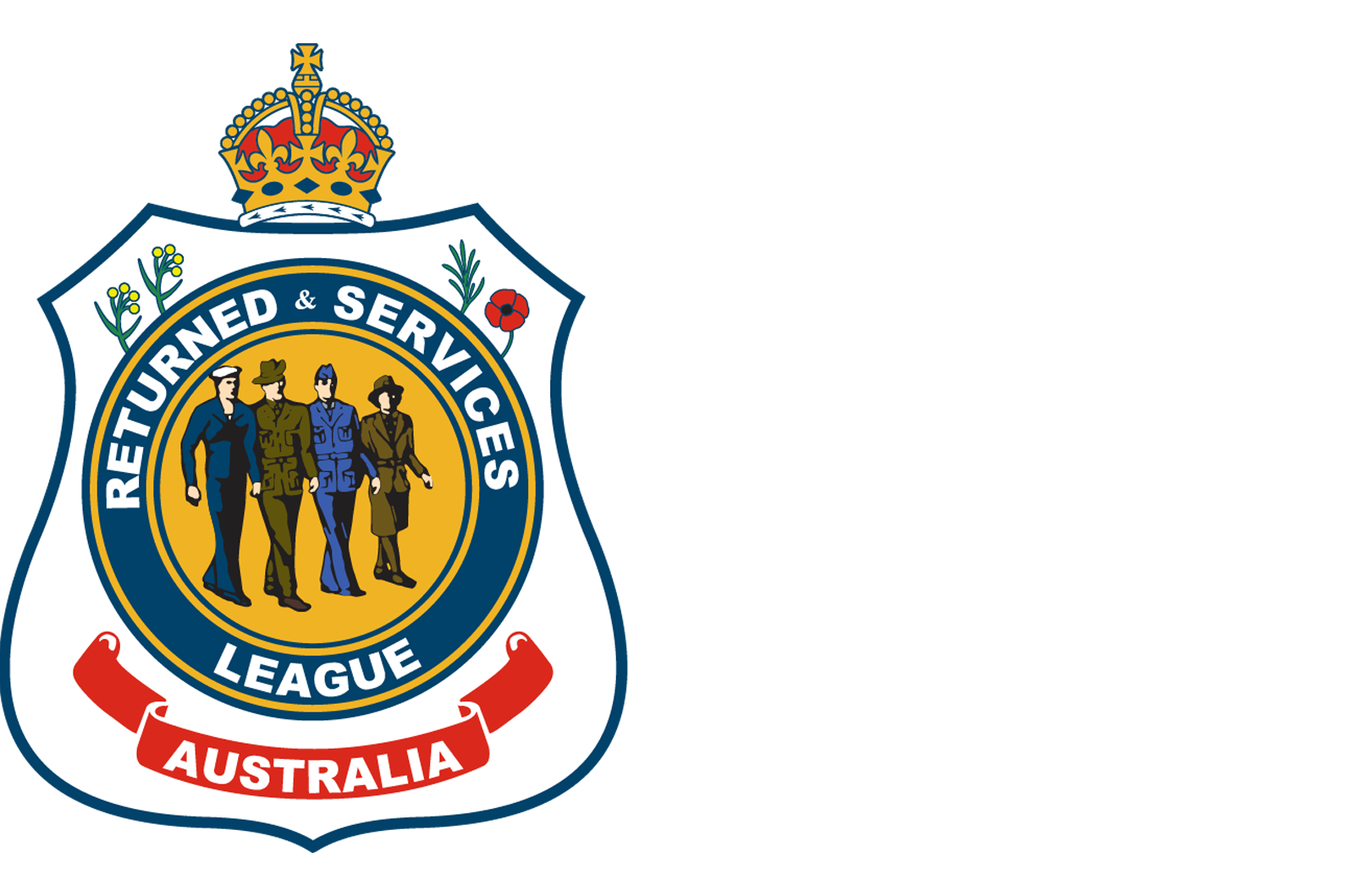1 May 2025
World War II veteran shares his story ahead of 80th Victory in the Pacific Day
“We all cheered, ‘Hooray!’. Then bang, bang, bang, everyone was firing off their bullets into the air,” Dawson, now 100 years old, gleefully recalls.
Commemorated annually on 15 August, Victory in the Pacific Day marks Japan’s acceptance of the Allied demand for unconditional surrender, which ended World War II.
Ahead of the 80th anniversary in 2025, WWII Army veteran and Magnetic Island RSL Sub Branch member Dawson looks back on his time in the Army during the largest war the world had seen.
“I went to enlist in 1943 when I was 18, after my dad came home ill,” Dawson explains.
“I was moved around a bit in Victoria and New South Wales and completed a motor transport course. I was then told to report to the Jungle Warfare Training School up in Canungra in Queensland.
“Then one night in 1944, the big troop ship came in, put us on, and took us out into the darkness to Wewak in Papua New Guinea. That was my first deployment.”
Dawson served with the 6th Division 2nd 9th Australian General Transport (AGT) Company and was tasked with driving supplies and officers around the jungle to troops. He remained in Papua New Guinea until the end of the war.
In February 1946, after Papua New Guinea, he boarded the Taos Victory ship with about 1,000 other personnel headed for Japan – six months after the atomic bomb had fallen.
Dawson Reimers during his time in service.
“We landed in Kure before heading to Kaitaichi, which was about 8km from Hiroshima. We were sent there to take possession of the petrol place and provide sanitation. As Hiroshima had been a garrison city, we were involved in the disarming of repatriated Japanese soldiers returning to the city,” he says.
“I had a change of heart when I was in Hiroshima. I remember looking up to the sky and in my mind, thought about the huge plane that would have flown over, and then I looked down at a devastated city.
“I thought about how most of the people killed were men, women and children, and how so many of those who survived would be affected by the radiation. That turned me around. It made me hate, hate.”
Dawson served for five years and two months and was discharged in May 1948 when he returned to Victoria.
“After I was discharged, I was given a month of leave that I had accrued after being in Japan for two years without leave,” Dawson explains.
“I then went on a month-long, self-march up in the hills of Mount Baw Baw outside Melbourne before returning to work as a butcher, which was what I was doing before joining the Army.”
When he came back from Japan, he also joined Thornbury RSL Sub Branch with a lot of other service men at the time.
“Following that, I joined the Army again when the threat of the Cold War became apparent. I was in the 5th battalion, Victorian Scottish Regiment,” he says.
Dawson served part time and rose to the rank of Lieutenant the second time around.
“I was a trained soldier. The very fact that I walked up into the mountains when I came home from Japan shows it was ingrained in me.”
During this time, Dawson married his long-time sweetheart and raised three children in Coburg. In 1971, the family moved to Townsville while Dawson continued to work. Thirteen years later, the couple purchased their home on Magnetic Island, where Dawson has lived ever since.
A few years after moving to the island, Dawson joined Magnetic Island RSL Sub Branch, where he was one of a few in the Sub Branch that was a member for more than 30 years.
Image: Magnetic Island RSL Sub-Branch | Dawson Reimers receives a framed 30 year membership certificate
Now armoured with a few more years of life experience, Dawson looks back at his time in the Army with pride and attributes his long life to finding a purpose.
“I am proud of my service. I also came from a family that was in poor circumstances, which meant I started working at the age of 13. I kept going for them and here I am,” he says.
“I’m happy with my life; I have been lucky. I’m living by myself now and have got great neighbours that visit me.”
Sadly, Dawson passed away on 26 April 2025. His humour, kindness and positivity will be deeply missed.

